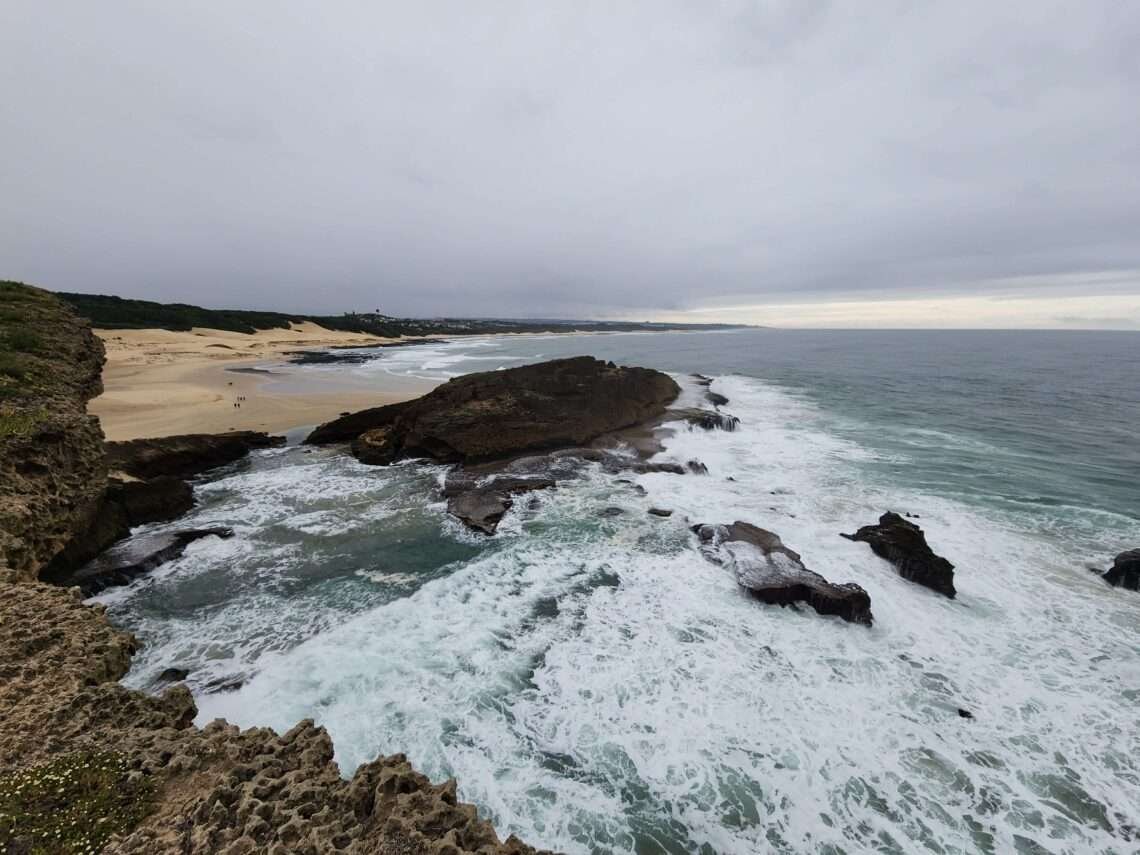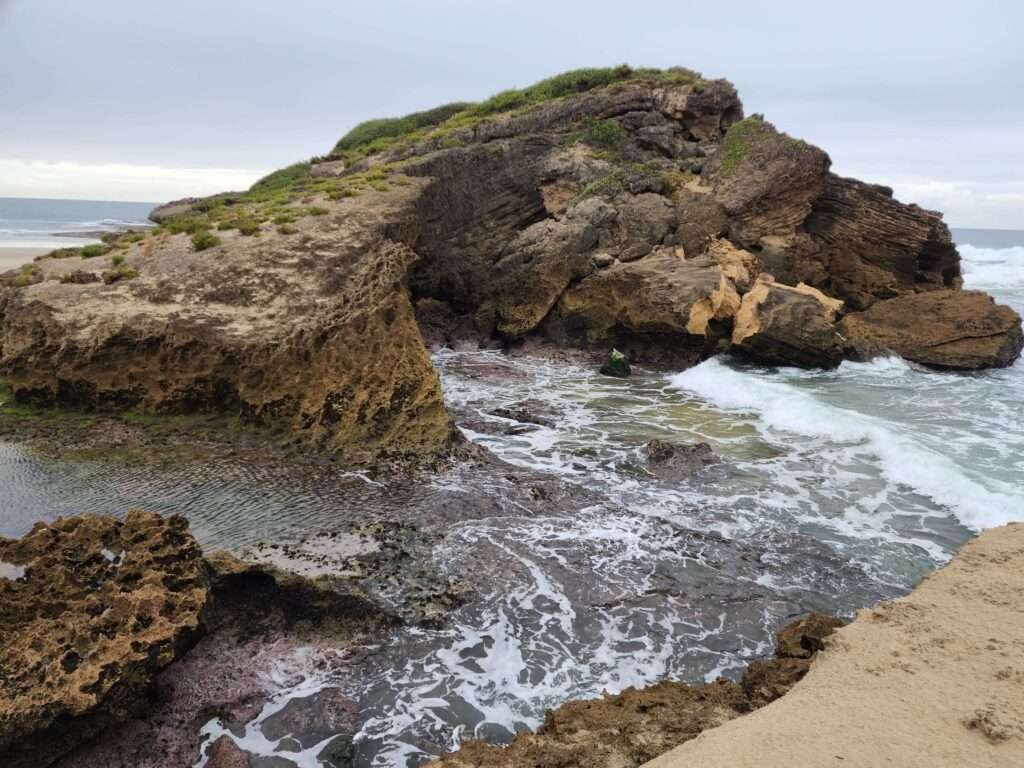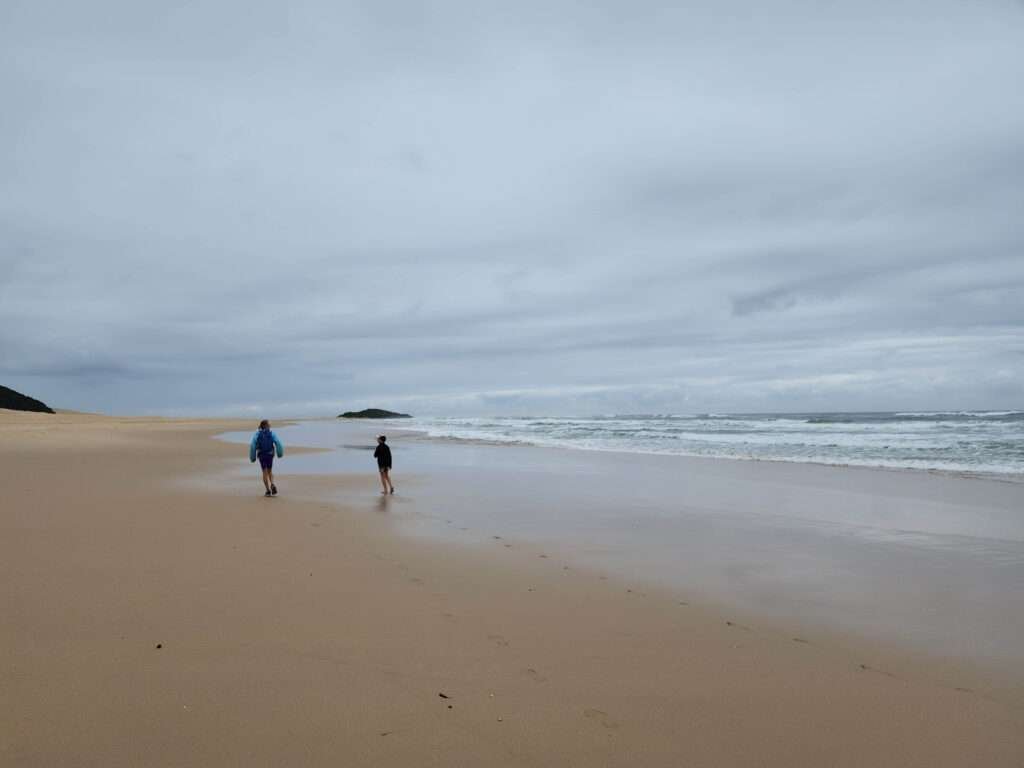
Cove Rock: Tracing the Threads of East London’s Rich Heritage
Gompo Rock, also known as Cove Rock is a natural wonder of two sandstone rocks rising prominently from the sea. The rocks reach a height of 14 meters, with a naturally formed water channel running between them. The site lies 11km west of East London between Hickman’s River and Winterstrand. Reaching the rock requires a bit of a walk across a sandy beach, but this is all part of the adventure! While it’s clear that the site is beautiful, its historical importance and symbolism in Xhosa culture aren’t widely recognized. In this blog post, I will take a closer look at the history of Cove Rock and share a brief account of its remarkable story.
Note: Due to safety concerns in the area, it is advised to visit Gompo as a group.
Cove Rock: A Place of Ancestral Spirits

According to local beliefs, water spirits called Abantu Bomlambo are thought to dwell beneath the Rock. The story goes that when turbulent seas flow through the openings in the rock, the water echoes as if the chiefs are communicating through drums.
The most well-known historical incident linked to the site revolves around the Xhosa prophet Makhanda Nxele. His attempt to summon ancestors from the sea has evolved into a lasting legend in Xhosa history.
The History of Makhanda, the Political Prophet
Makhanda, once an ordinary person, rose to prominence by preaching to the Xhosa community whenever the chance presented itself. The backing of Chief Ndlambe elevated his status to that of royalty. Following a triumph in the Battle of Amalinde in 1818, Makhanda led a large army in an attack on Grahamstown in 1819. After winning the Battle of Amalinde in 1818, Makhanda attacked Grahamstown in 1819. Although it nearly worked, settlers turned things around, leading to the Xhosa retreat and the start of the Fifth Frontier War. [source: https://www.buffalocitytourism.co.za/post/magical-mystical-gompo-rock]
Makhanda’s Legacy at Cove Rock

After the defeat in Grahamstown, Makhanda went to Gompo Rock with a new plan. He wanted to call on the ancestors from the sea to drive away the colonizers from the Eastern Frontier. A crowd gathered to see him try to leap from one part of the rock to another. He promised that if he succeeded, their ancestors would rise from the sea. Makhanda spent the whole day thinking about the difficult task. The onlookers got restless, urging him to jump, but he didn’t. When night came, the Xhosa lit bonfires, had a feast, and left, leaving Makhanda to figure out his next steps.
Realizing the super-human feat was impossible, Makhanda had no alternative but to surrender himself to the British forces. All the while, he pledged to return to his people one day. Transported to Robben Island Prison, Makhanda met his end in the cold waters of the Atlantic in 1820. [source: https://www.buffalocitytourism.co.za/post/magical-mystical-gompo-rock]
Silinde ukuza kukaNxele: The Endless Wait for Nxele’s Return
Today the IsiXhosa expression ‘Silinde ukuza kukaNxele” (translation: ‘we are waiting for the return of Nxele’) is used to describe waiting endlessly for something to happen.

Cove Rock, with its natural beauty and rich cultural history, stands as a testament to the profound connection between nature and heritage in South Africa’s Eastern Cape Province.
Where to find Cove Rock
There are several ways to get to Cove Rock. Park at Hickman’s River (S33 04.182 E027 50.379) and take a 2.3km easy walk or park at Winterstrand (S33 05.633 E02747.665) and walk 3.3km eastwards to Cove Rock.
- 21 Things to do in East London
- Bats Cave East London: How to visit this secret destination
- 10 Restaurants in East London to try
- 10 Best Weekend Getaways near East London
- The Retreats: A tranquil farm stay near East London
- Why East London is South Africa’s most underrated coastal gem
- Ideas for things to do near East London
- Gonubie Gems: 10 Activities you will love in this charming East London town




